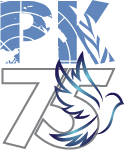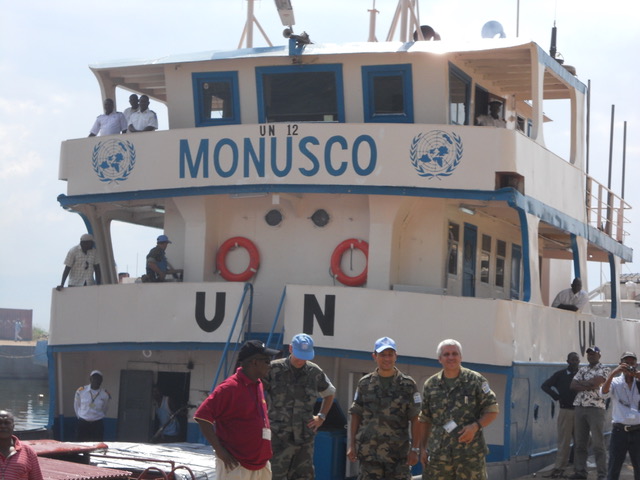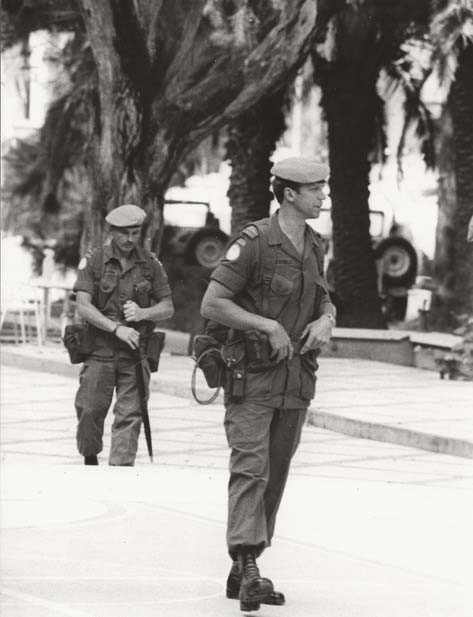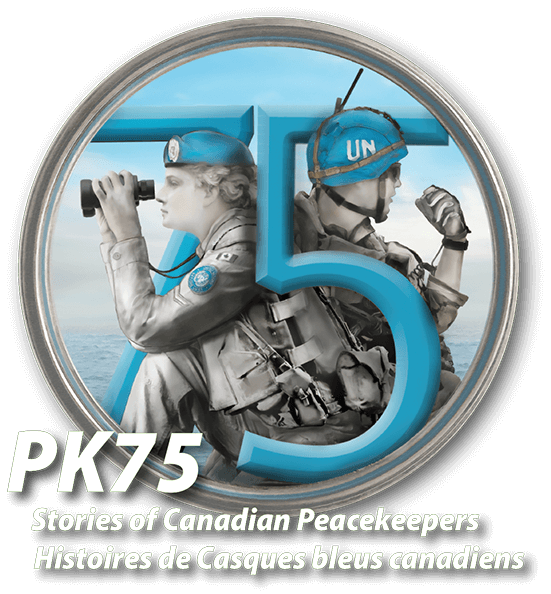

I had two UN tours in Cyprus — United Nations Peacekeeping Force in Cyprus (UNFICYP); 1977 and 1984. The UN has been Peacekeeping (PK) there since 1964. A quiet, sleepy place, the Canadians had been rotating units on six-month tours. The Canadian contingent of 2nd Battalion, The Royal Canadian Regiment (2RCR) was based in the once magnificent and well-known Ledra Palace Hotel, in the center of the old city of Nicosia. The buffer zone, or the Green Line as it was called, ran through the center of Nicosia. The name Green Line was apparently derived from the grease pencil a senior Canadian officer had used to delineate the buffer zone when hostilities between the Turks in the north and the Greeks in the south ended.
During my first Cyprus tour in 1979 with 2RCR, I was a Lieutenant and second in command of the Reconnaissance Platoon ; my boss was Captain Murray Swan. Reconnaissance platoon was a great job, because we had free rein to travel anywhere in our Canadian Sector to see what was going on, and to keep our finger on the pulse, as it were.
One day, Captain Swan received news that the road to one of the Canadian Sector’s observation posts (OPs) was blocked by Turkish forces. We were tasked to go and find out what the problem was. Prior to departing, I was puzzled to see Captain Swan pass by the kitchen and ask a cook to provide him with a thermos of coffee. We drove out to the OP in a jeep, and were stopped by the Turkish roadblock. I noted that a machine gun and recoilless rifle were covering the roadblock and were pointed at our vehicle. A Turkish non-commissioned officer (NCO) arrived and told us that we could go no further. Captain Swan told him we would wait until a Turkish officer comes to our vehicle to discuss the matter. As we waited, Murray poured us a coffee. The appearance we conveyed in doing this was that we were not in a hurry, and quite cool about the situation. Eventually, an officer showed up, and Murray offered him a coffee. That act broke the ice and, after a long discussion, the officer agreed to remove the roadblock. That lesson of “coffee diplomacy” stayed with me.
In 1984, I was again sent to Cyprus, this time as a Company Commander, in charge of N Company, 3 RCR. My sector was the Old City. It was the most interesting part of the entire Green Line in Cyprus, and also where the Greeks and Turks were the closest to each other. In some cases, only a few meters separated the two sides. Passage between both sides could only be on foot. The buffer zone between the two adversaries was too narrow for a vehicle to pass.
One evening during a mess dinner, I was told there was a problem between the Greeks and Turks in my Sector. I contacted my Company Sergeant Major (CSM) Bob Hodgson and my driver and changed into my combat fatigues. I met the CSM and told him I first needed to pass by the kitchen to get a thermos of coffee. He had a puzzled look about why I would waste time in this emergency by stopping to get a thermos of coffee. We departed in the jeep to the Green Line, Old City. The separating buffer zone between the Greeks and Turks was so narrow that vehicles could not pass. The jeep stopped at the beginning of the sector, and we began to walk, in the dark, to the incident area. As the CSM and I approached the area, we saw there was a face-off between the two sides. In the distance we saw dozens of weapons on both sides aimed at each other — just meters apart. I decided to walk to the Turkish side first because they were the strongest military force on the island. I walked up to the wall and shortly, a Turkish Lieutenant Colonel whom I knew, approached me walking on the wall. I greeted him, and opened my thermos and poured a coffee and reached up and offered it to him. After a short pause, he reached down and took it. As we both sipped coffees, he began to relax and calm down. We discussed the situation, and I agreed with him that probably the Greeks had caused the issue but that I will talk to them next and hopefully the issue could be resolved. I then turned around and walked a few meters and met a Greek Lieutenant Colonel whom I also knew. I followed the same procedure as with the Turkish officer and offered a coffee — which the Greek Lieutenant Colonel accepted. He complained and asked why I had gone to the Turks first. I told him that I knew they (the Turks) had caused this problem and wanted to talk them down first. The Greek officer and I discussed and resolved the matter, and both sides backed down and the situation went back to normal. The CSM was impressed with the coffee diplomacy. I told him it was not my idea, but something that Captain Murray Swan had shown me seven years previously.
Biography
I began my military career in my hometown of Ottawa at the age of 16, eventually completing over 38 years of combined military and United Nations (UN) service. I joined the Cameron Highlander Cadet Corps, and learned all about wearing a kilt, battle dress, and putties, and using the old WWII weapons we had — the 303 Enfield rifle and the Bren Gun. Life with the Cameron Highlander Cadets revolved around that venerable old building — Cartier Square Drill Hall, in the center of Ottawa, beside the Rideau Canal and not far from the Parliament buildings. After two years, I moved across the Drill Hall to a Militia unit — the Governor General’s Foot Guards (GGFGs). In that unit, we paraded once a week during the school year, and in the summer, I earned university tuition money by working in the Guards Public Duties Detachment, which performed the daily Changing of the Guard on Parliament Hill. My first year on the Hill, I was a private soldier or guardsman, and then I became an officer, and for 2 years was a platoon commander during the Changing of the Guard.
After graduating from Carlton University in Political Science (I admit I did not know what kind of job I could get with this degree), I decided — against the advice of my entire family — to join the military; I was planning for two or three years, until I could figure out what I wanted to do in life. That initial, short-term plan extended to 28 years as an infantry Officer in The Royal Canadian Regiment. From my initial posting to Gagetown, NB, I subsequently worked, or as the military likes to say — served — in Montréal, Baden-Baden, Germany, Toronto, Heidelberg, Germany, NATO Defence College in Rome, Yellowknife, Petawawa, Ottawa, Mons, Belgium, and Kingston. I was a military Peacekeeper in Cyprus twice (1978 and 1984), and in Angola 1990, and the Western Sahara 1991. As a Regular Force infantry officer, I routinely deployed on various training exercises or exchanges in the U.S. and Europe. Some of the highlights of my military career included Command of 3rd Battalion, The Royal Canadian Regiment in Petawawa, and Intelligence and plans officer at Supreme Headquarters Allied Powers Europe (SHAPE) in Mons, Belgium, during which time I was the SHAPE liaison to the Albanian Prime Minister’s office during the Kosovo crisis. I was also Chief Operations Planner for Norway and Turkey — Allied Mobile Forces HQ, Heidelberg, Germany. For my last military job, I was a Visiting Defence Fellow, School of Policy Studies, Queen’s University, Kingston.
I left the military in 2000 and joined the UN, first as a consultant and subsequently as a member of the full-time Professional Staff, and I worked in, or alongside, UN missions all over Africa, the Middle East and Asia.
After my departure from the Canadian Forces, I had UN experiences in Jordan, Iraq, Liberia, Indonesia, Sudan, South Sudan, Aghanistan, and the Democratic Republic of the Congo.
Currently, I am living in Paris, France, and I am a consultant in Operations, Security, and Logistics. Since I moved to Paris, I have consulted on a variety of projects; however, the following are related to Peacekeeping (PK):
- Lead Consultant at UN Office of Program Support (UNOPS) New York, for Japanese funded Project for the establishment of a rapidly deployable engineer capacity for UN PK missions in Africa and the Middle East;
- Advised the Department of Peace Keeping Operations (DPKO) in Bamako, Mali, on the overall Peacekeeping mission support structure, supply chain and support arrangements required for the start-up of the UN peacekeeping mission in Mali; and
- Head of Logistics and acting Security Officer for the UN Food and Agriculture Organization (FAO) in the UN mission in Damascus, Syria during the height of the civil war.

Visit to Goma.

Major David Pittfield, Officer Commanding N Company, with Company Sergeant Major Bob Hodgson, Nicosia, Cyprus, 1984.


